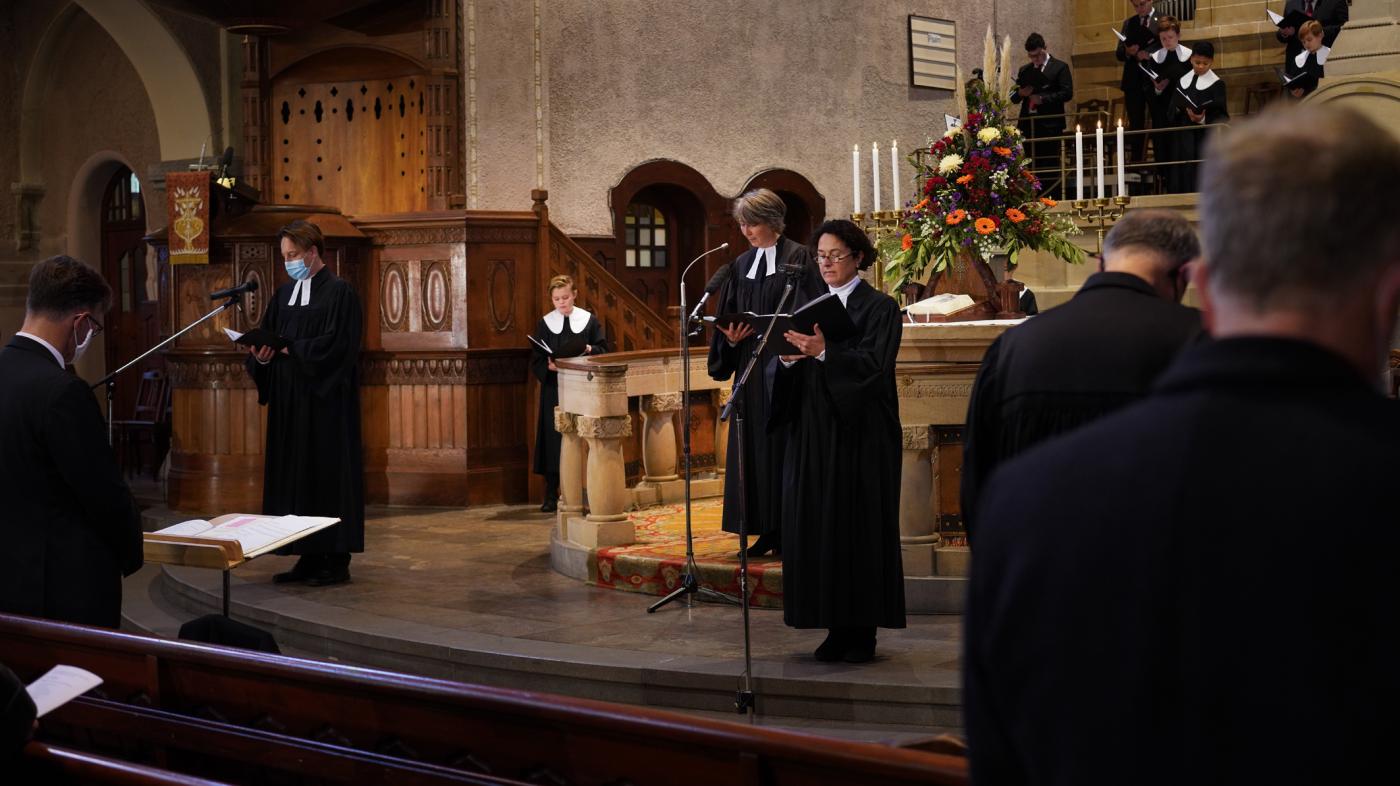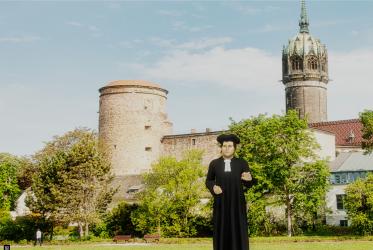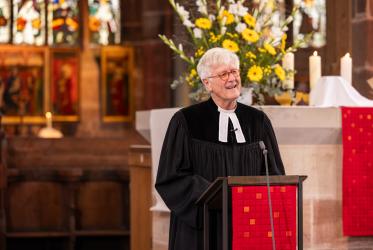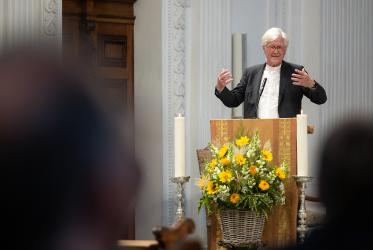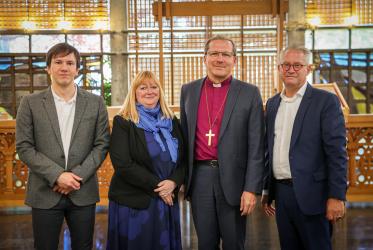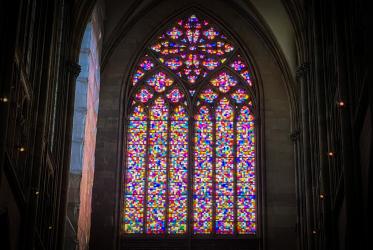Protestants in Germany have commemorated the 75th anniversary of the Stuttgart Declaration of Guilt, made by German church leaders to an international ecumenical delegation shortly after the Second World War, in which they confessed their failings and shortcomings in opposing National Socialism and the Third Reich.
“It is more than a liturgical ‘mea culpa’; it is an expression of the existential darkness that the authors of the Stuttgart Declaration of Guilt expressed 75 years ago on behalf of many others about the devastation of the years of the Third Reich,” Bishop Heinrich Bedford-Strohm, chairperson of the council of the Evangelical Church in Germany, said in a sermon at a central memorial service in Stuttgart on 18 October.
The 1945 declaration was made at a meeting in Stuttgart on 18–19 October 1945 between the council of the newly formed Evangelical Church in Germany and an international delegation of church leaders, led by Willem A. Visser ’t Hooft, general secretary of the World Council of Churches (WCC), at that time still in formation prior to its official founding in 1948.
In the declaration, the German Protestant leaders confessed that, “Through us, infinite wrong was brought over many peoples and countries . . . we accuse ourselves for not standing to our beliefs more courageously, for not praying more faithfully, for not believing more joyously, and for not loving more ardently.”
In response to the declaration, Visser ’t Hooft invited the German Protestant church to become a member of the WCC as soon as possible, writing in his notes about the meeting: “We need the witness of the German Church in the ecumenical movement.”
At the time, the declaration was highly controversial in defeated Germany and unleashed a storm of protest, including from within the churches, Bedford-Strohm recalled in his sermon, something that demonstrated “just how difficult it was for Germans genuinely to accept guilt.”
However, “we cannot commemorate the Stuttgart Declaration of Guilt without naming its shortcomings, above all the lack of an explicit mention of the guilt toward the Jews,” added Bedford-Strohm, who earlier this year visited the Auschwitz extermination camp with leaders of German Jewish and Sinti and Roma organizations.
In a greeting to the service, the WCC’s interim general secretary, Rev. Prof. Dr Ioan Sauca, said the Stuttgart declaration “opened the door to overcoming enmity and the common search for peace and reconciliation among the member churches of the WCC and thus also among the peoples to which they belong.”
Sauca recalled how in the middle of the Second World War, Visser ‘t Hooft brought together representatives of resistance groups from German-occupied countries with German opponents of Hitler’s regime.
“They agreed that peace in Europe would not be possible without the participation of Germany on an equal basis in a European federation. Their ideas anticipated the foundation of the European Union,” Sauca said in his message
Sauca, who was not able to be present in Stuttgart because of restrictions linked to the COVID-19 pandemic, noted how the WCC’s 11th Assembly is to take place in 2022 in Karlsruhe, Germany, hosted by the German churches with neighbouring churches in France and Switzerland.
“In October 1945 it would have been impossible to imagine that one day a WCC assembly would take place in Germany,” he said in his message. “What happened back then here in Stuttgart has contributed to the fact that that today, between Karlsruhe and Strasbourg, a bridge of peace links Germany and France across the Rhine.”
Greeting by Rev. Prof. Dr Ioan Sauca, interim general secretary of the World Council of Churches
